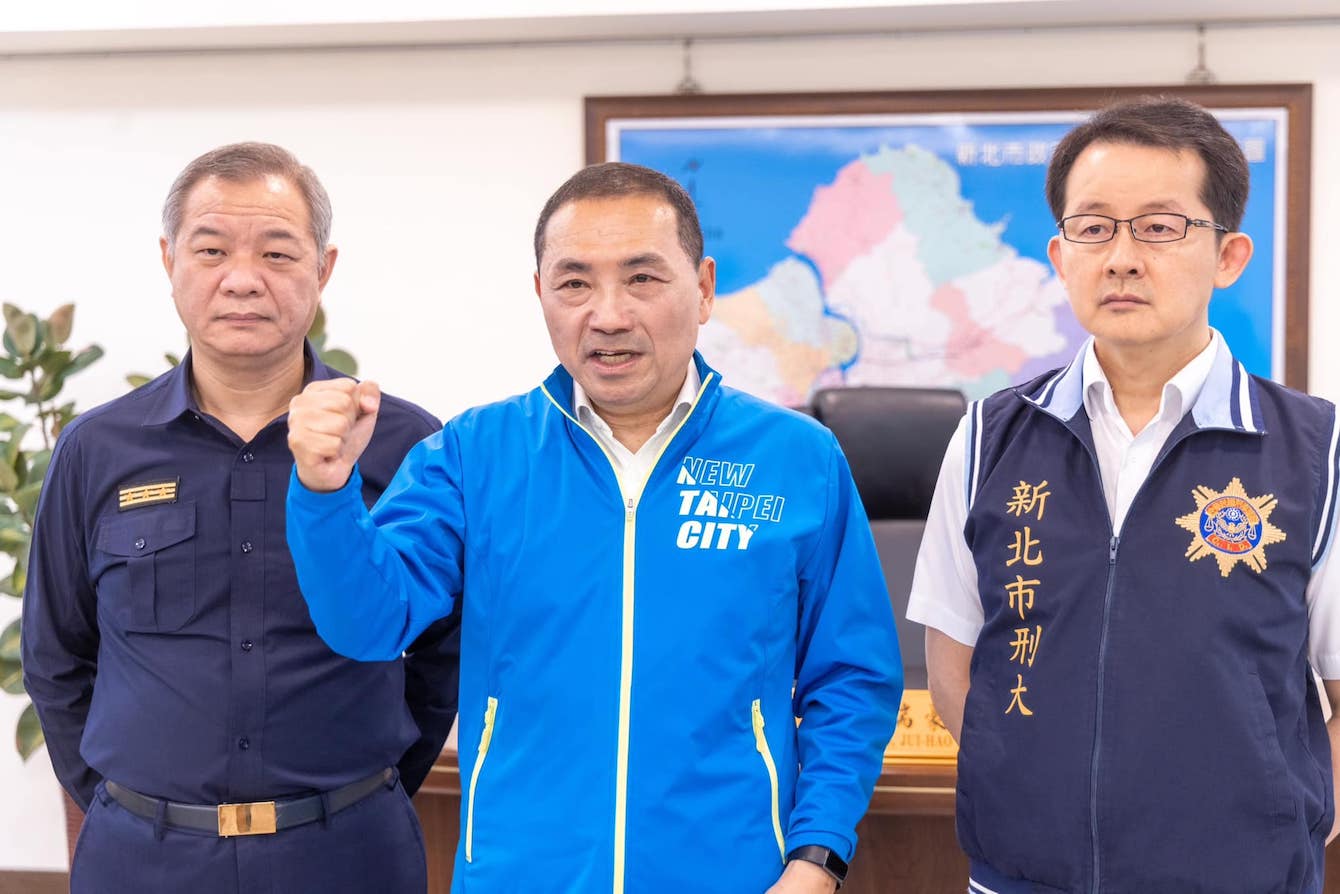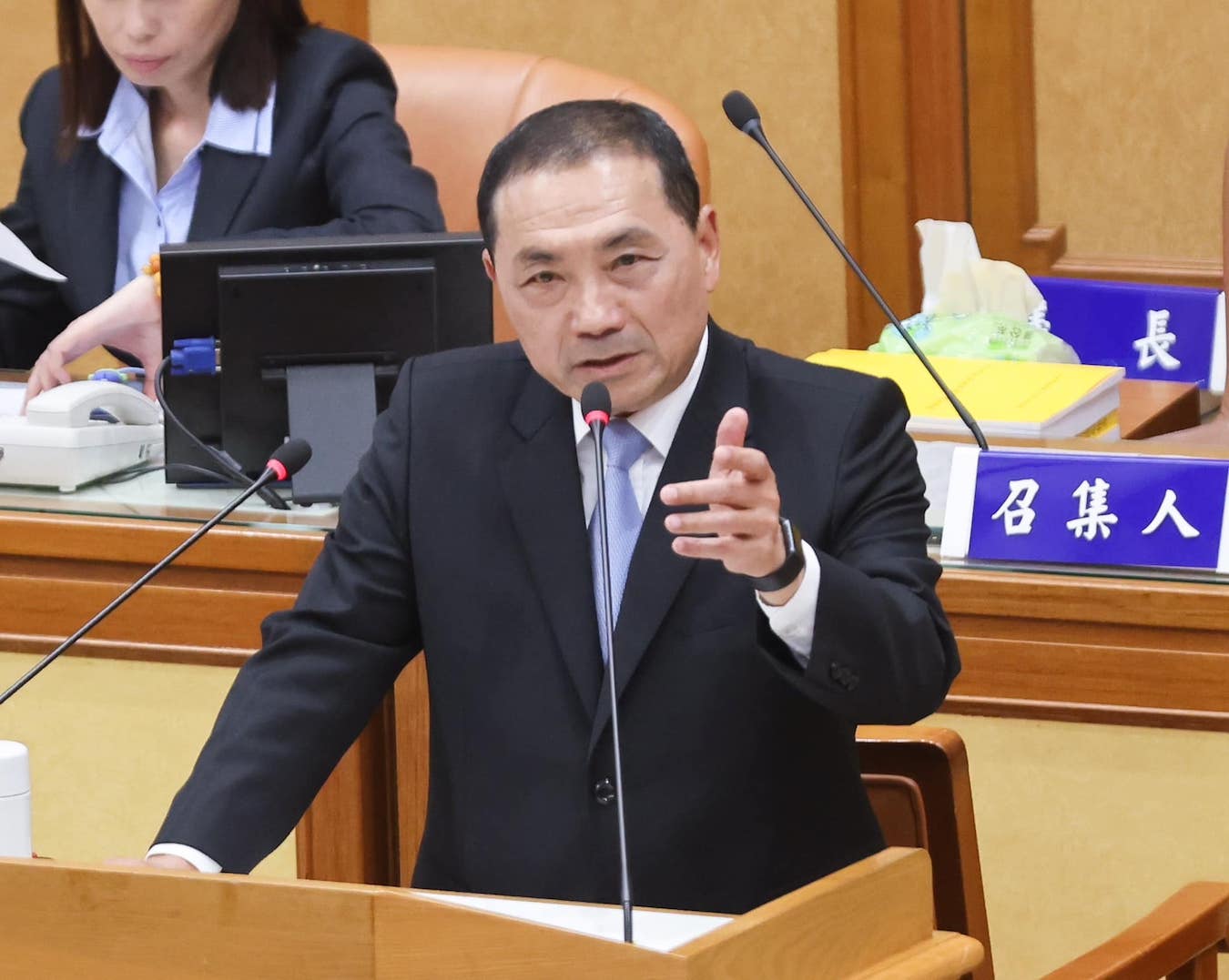by Brian Hioe
語言:
English
Photo Credit: Hou You-yi/Facebook
IN COMMENTS MADE earlier this week, New Taipei mayor Hou You-yi expressed opposition to both Taiwanese independence and Beijing’s “One Country, Two Systems.” This is among the clearest articulation of a cross-strait stance by the New Taipei mayor to date, with Hou angling for the presidential nomination of the KMT. Otherwise, Hou committed to the defense of the ROC, which includes Matsu, Kinmen, and Penghu.
Hou is attempting to frame himself as a candidate moderate on cross-strait issues, in suggesting that support for One Country, Two Systems is an extreme pro-unification stance, while Taiwanese independence would be a similarly extreme position–but that he opposes both. Indeed, it would be to Hou’s advantage to do so, in that one reason for Hou’s polling ahead of other KMT candidates is because of his moderate stance on cross-strait relations.
 New Taipei mayor Hou You-yi. Photo credit: Hou You-yi/Facebook
New Taipei mayor Hou You-yi. Photo credit: Hou You-yi/Facebook
Hou was more ambiguous as to whether he supported the 1992 Consensus. The 1992 Consensus has proven unpopular with the general public in past years, such that successive KMT chairs such as Johnny Chiang and current KMT chair Eric Chu have suggested jettisoning the 1992 Consensus after taking office. Nevertheless, both Chu and Chiang reversed course on the idea in the face of opposition from KMT party heavyweights who view the 1992 Consensus as a significant part of their political legacy, such as Ma Ying-jeou, the last KMT president of Taiwan.
Hou is likely to face opposition from the same party heavyweights, with his lack of a clear cross-strait policy up until now contributing to his popularity with the general public, but leading to distrust of him within the party due to his refusal to commit to a stance in line with the party consensus. As such, during his comments, Hou acknowledged the commitment to the 1992 Consensus of party elders such as Ma but did not necessarily commit to it himself.
It may not be surprising, then, that the pan-Green camp has focused fire on Hou over this, calling on Hou to clarify his views on the 1992 Consensus. In particular, the KMT is unwilling to drop the 1992 Consensus due to the influence of Ma and others in the party who played a key role in cementing the 1992 Consensus, but it proves a toxic brand for the KMT at present.
That is, the KMT faces difficulty distinguishing the 1992 Consensus from the similar notion of One Country, Two Systems, seeing as the 1992 Consensus takes the view that there is one China, but respective interpretations of that China between Taiwan and China. The KMT was unable to do so in the lead-up to the 2020 elections, seeing as presidential candidate Han Kuo-yu traveled to Hong Kong to meet with Hong Kong Chief Executive Carrie Lam, but had to quickly backpedal and condemn Lam after the outbreak of the 2019 Hong Kong protests.
Han condemned One Country, Two Systems as well as Lam, yet this was found to be unconvincing by the general public. In this respect, Han was unable to draw a distinction between the 1992 Consensus and One Country, Two Systems in the eyes of voters.
So, too, with Hou You-yi then. Either way, Hou, as with other KMT presidential candidate contender Terry Gou, has committed to the defense of the ROC as a key platform, seeing as this is the consensus position of the KMT at present and members of the pan-Blue camp view the ROC as under assault from the DPP. Hou, too, will try to frame this as a moderate position.
 Photo credit: Hou You-yi/Facebook
Photo credit: Hou You-yi/Facebook
Hou would probably be best served in campaigning by remaining strategically ambiguous on his views about the 1992 Consensus. This would keep the party elders that will determine whether he serves as the presidential candidate of the KMT happy, while not alienating the general public.
Namely, the KMT will be deciding its choice of presidential candidate through an internal process rather than an open primary. This seems to be due to fear of Hou by the party establishment, as a move by party chair Eric Chu aimed at allowing him to serve as the KMT’s presidential candidate himself. Though Chu’s political window of opportunity seems to have receded and Chu has stated that he will not run himself, the KMT establishment still distrusts Hou out of loyalty concerns.
Specifically, there is distrust of Hou as a benshengren, who was close to the DPP in the past during the Chen administration. The KMT continues to fear that a pan-Green turncoat could rise to the top of the party in a similar manner to former president Lee Teng-hui and this continues to be an obstacle for the party in terms of fielding moderate candidates, who are forever questioned over loyalty.

